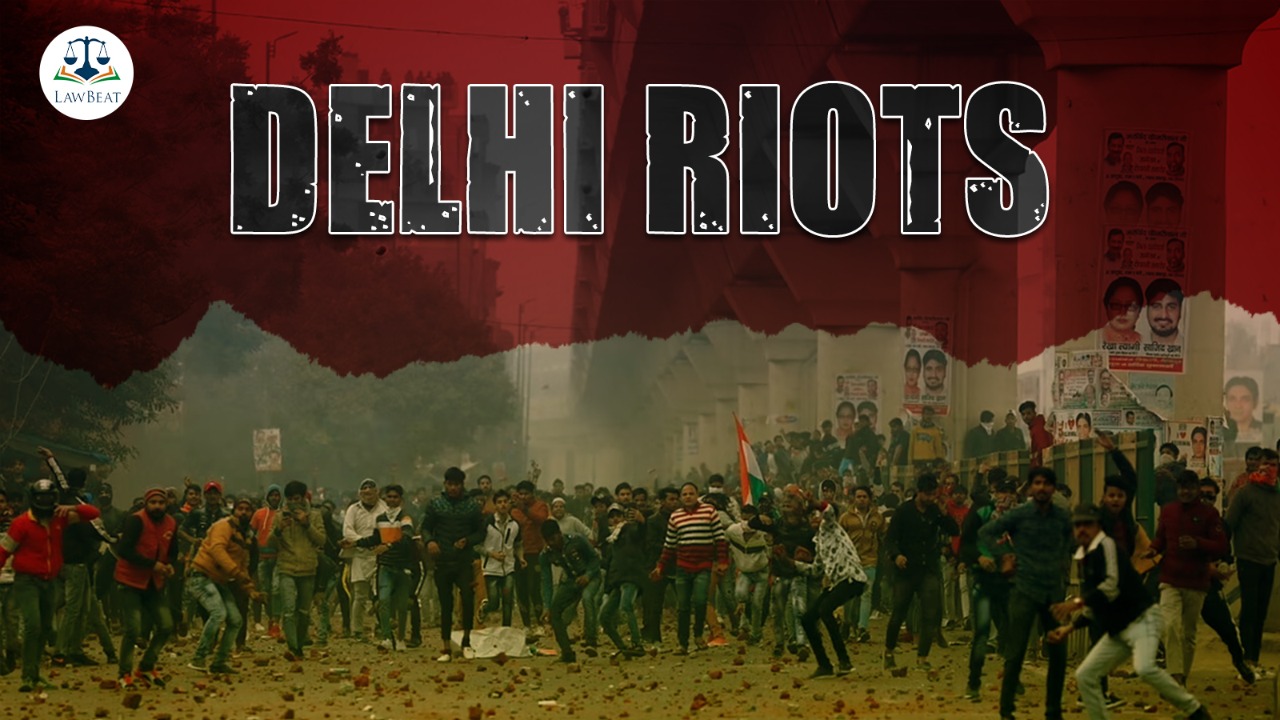Delhi High Court Grants Bail to Two, Denies Bail to Third in 2020 Northeast Delhi Riots Death Case

Court acknowledged the sensitivity of the case, considering the loss of life and the communal tensions during the riots, emphasizing the need for a careful and fair trial to establish guilt or innocence
The Delhi High Court has granted bail to two individuals, Arif and Anish Qureshi, and denied bail to Mohd. Mustaqeem, in connection with the death of Rahul Solanki, an innocent bystander during the 2020 Northeast Delhi riots.
Justice Amit Bansal, presiding over a single-judge bench, made the rulings based on the available evidence and circumstances of each accused.
The court observed that the evidence against Arif and Anish Qureshi suggested, at best, their involvement in an unlawful assembly, with no indication that they were armed with dangerous weapons.
Noting that the only additional allegation against Arif was breaking a CCTV camera, Justice Bansal stated that mere participation in an assembly does not imply knowledge or intent for murder.
Considering the lengthy incarceration of the applicants and the anticipated extended trial, the court granted bail, subject to a personal bond of Rs 35,000 each with specified conditions.
In a separate order regarding Mustaqeem, the court referred to an eyewitness statement identifying him as the person who fired the fatal shot.
“In light of these statements, it cannot be stated that the applicant has been identified only based on the 10-second mobile phone video clip. As regards the contention of the applicant of there being a discrepancy in the various statements made by the eyewitness, Anil Kumar, and inconclusiveness of FSL reports, the effect thereof… cannot be considered at this stage and can be considered only at the stage of trial on appreciation of evidence," the court said.
The court emphasized that the eyewitness recognition was not solely based on a 10-second mobile phone video clip, and Mustaqeem's involvement appeared prima facie.
Rejecting Mustaqeem's bail plea, the court stated that the serious charges, including murder, and the pending examination of material witnesses provided insufficient grounds for release at this stage.
“I am in agreement with the submission of the learned SPP that the applicant cannot be granted bail only on account of long incarceration, as the applicant has been charged with offences punishable with death or imprisonment for life. Considering the… fact that material witnesses are yet to be examined, this court does not find any ground to grant bail to the applicant at this stage,” the court said, dismissing Mustaqeem’s bail plea.
The Delhi High Court outlined the case's background, initiated when Rahul Solanki suffered a gunshot injury during the riots on February 24, 2020, ultimately leading to his death.
The investigation revealed that Solanki was shot by a rioter while purchasing groceries at Pal Dairy Wali Gali. Arif and Anish were arrested on March 9, 2020, while Mustaqeem, not initially named in the FIR, was later identified based on an informer's information and supplementary chargesheet.
The trial court, in its March 6 order, framed charges against the trio under various sections of the IPC including 147 (rioting),148 (rioting with armed deadly weapon), 153A (promoting enmity between different groups on grounds of religion, race, place of birth, residence), 302 (murder) read with section 149 (every member of unlawful assembly guilty of offence committed in prosecution of common object). Additionally, charges were also framed against Mustaqeem for offences under the Arms Act.
With respect to Arif and Anish, the prosecution had invoked Section 149 IPC read with Section 302 IPC to contend that the accused, along with other members of the mob, “had a common intention to commit murder of the deceased”.
With respect to Mustaqeem, the court noted that the eyewitness in his March 8, 2020 statement had described the former, with a “helmet in one hand and a pistol-like weapon in the other, and who was wearing a blue t-shirt, had fired the bullet”.
Case Title: Arif v. State (another connected matter)
